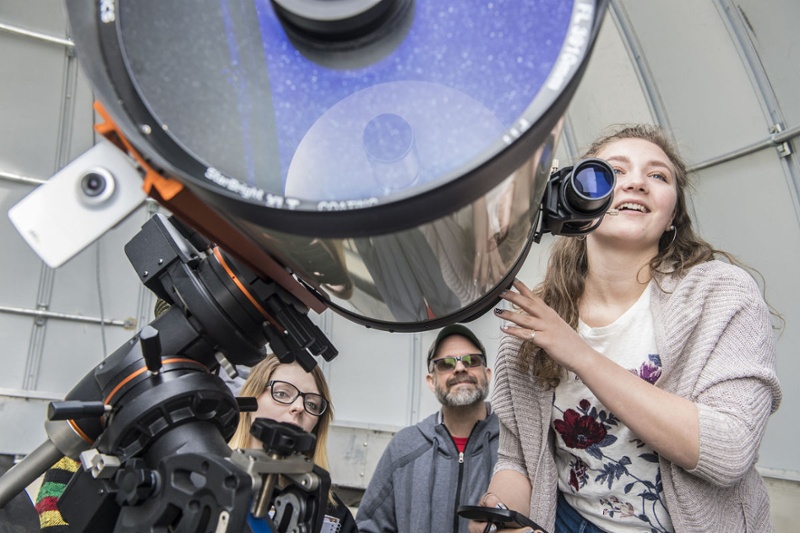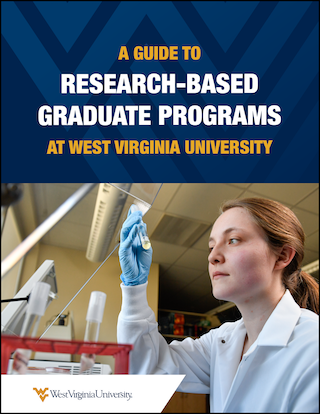
External funding for research and other sponsored programs at West Virginia University totaled $181.4 million this past fiscal year — a University record that bucks a downward trend that sees higher ed grappling with dwindling resources.
“Our record-breaking numbers reflect the commitment of our faculty, staff and partners to continue elevating the research profile of West Virginia University,” Vice President for Research Fred King said today in announcing the latest numbers.
WVU: A Leader in Research
King goes on: “The ability of the University community to attract such a volume of research dollars is one definitive reason why government and industry view us as a leader. It is a virtuous cycle in which such recognition, in turn, generates more investment in the University.”
In December 2018, the Carnegie Classification of Institutions of Higher Education ranked WVU an R1, or very high research activity institution. Only 131 of the nation’s 4,500 colleges and universities attain this ranking, and it places WVU in the same class as the nation’s elite research universities, such as Harvard, Yale, Columbia and Johns Hopkins.
The record figure represents a 24 percent, or $35 million, jump from the previous year ($146.5 million) and a steady climb since 2015, with $133.3 million reported that year.
WVU receives funding for research, instruction and service from a variety of sources including federal, state, industry and private donors.
WVU: Improving People's Lives
WVU President Gordon Gee said every cent coming in is utilized to its maximum potential – and that the results ultimately help improve people’s lives.
“Day in and day out, West Virginia University embraces its land-grant mission to enhance the lives of West Virginians,” Gee said. “The research being done at our university benefits not only the state, but the country and the world. We are on the frontlines of solving society’s most pressing problems, from creating new treatments for Alzheimer’s to confronting the opioid epidemic to bolstering our infrastructure.”
Research funding is usually obtained through a competitive process, in which projects are evaluated for quality and impact before monies are allocated. Competitions are run by government, corporations and foundations.
Of the various sources, funding from the federal government level dwarfed others with $95.6 million for the fiscal year ended June 30. State funding followed at $39 million and industry/other at $34.3 million.
The top three funding federal agencies included the National Institutes of Health, $27.7 million; Department of Energy, $12.2 million; and the Department of Health and Human Services (excluding NIH), $10.2 million.
The uptick in funding is a likely result of an increase in the number and competitiveness of proposals submitted to potential sponsors of the work.
In FY ’19, WVU faculty submitted 1,065 proposals while 488 were approved.
“We have some really amazing faculty,” King said. “The credit for this accomplishment is all theirs.
“In recent years, we’ve invested in programs to support and help faculty strengthen their proposals. As the faculty gain experience in the grant-seeking process, I think we’re going to see them achieve even greater success.”
It’s been a good fiscal year all around at WVU. In early August, the WVU Foundation announced that alumni and friends gave $177 million to the University, making it the second highest year of giving that supports scholarships and other programs at the University.
Note: This article was originally published on Friday, August 23 on WVU Today.
Are you ready to join a community of changemakers?
West Virginia University is dedicated to preparing professionals who can serve as leaders in a variety of fields and industries. In addition to developing students as innovators in their field, there are a variety of benefits to participating in a research-heavy graduate program. For instance, students pursuing a research-intensive graduate program at R1 institutions can expect to:
- Develop Critical Thinking Skills — Students have the opportunity to develop essential critical thinking skills, incorporating self-awareness and open-mindedness into their work.
- Provide In-Depth Perspectives — Students learn to explore and discuss multiple perspectives, worldviews, and cultural norms.
- Exercise Creative Solutions — Students learn to focus on factual information while also forming innovative perspectives on a variety of topics.
- Strengthen Communication Skills —By working together in an interdisciplinary manner, students learn to communicate by practicing skills needed to effectively convey and receive information.
- Prepare Students for Careers in Emerging Fields — Thanks to research, there are many advancements in technology, medicine, and other scientific industries. Research-intensive programs help students to prepare for careers in new and emerging fields.
If you think that pursuing a research-intensive graduate degree could be the next academic journey for you, we encourage you to contact a program representative at WVU. We can't wait to help you achieve your goals.

Explore the importance of research and the value of R1 Institutions with our digital resource page — A Guide to Research-Based Graduate Programs at West Virginia University!


-489630-edited.jpg)






